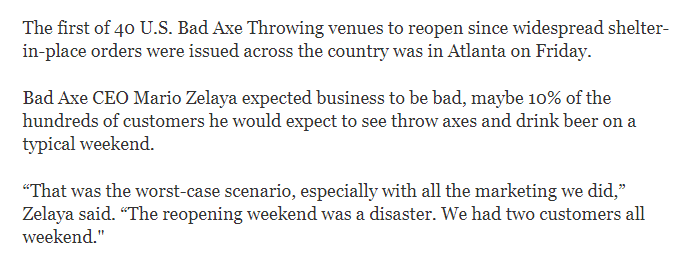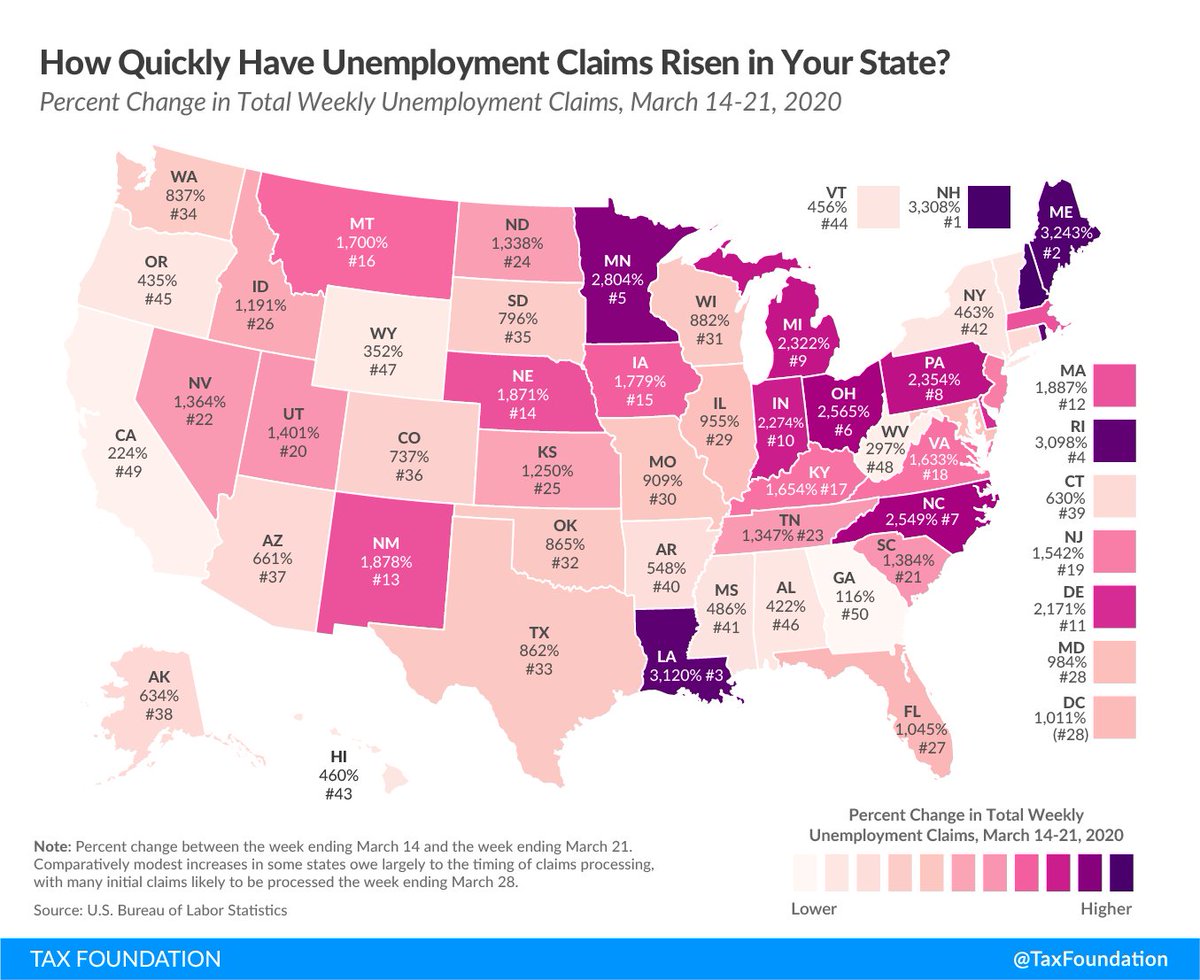
A benefit that (combined with state regular UC) gets most people to about 95% salary replacement through September seems better than one that gets most >100% but expires sooner. But exempting the first $10,200 from tax creates problems. Short thread.
https://twitter.com/ylanmui/status/1367870111781097478
(1) Many people have already filed and will have to file amended returns. Making benefits available as long as needed seems way more important than this complicated retroactive provision, which requires changing tax forms or instructions.
(2) Thirty-five states tax UC and will get about $13B from that this year. Most follow the feds on this, so the exemption will affect them as well. It lowers revenue -- and again, amended return issues, and states have to change their systems very late in the process.
(3) It has weird distributional effects. UC is partial salary replacement and scales (not 100%) with prior income. Your prior earnings plus UC determine your tax bracket. Excluding treats that first $10,200 the same for those whose prior jobs were at all income levels.
(4) Unemployment compensation is income. It's always been treated as income replacement and it doesn't make sense for it to be advantaged in the tax code over earned income.
This retroactive provision is a highly inefficient way to provide benefits.
This retroactive provision is a highly inefficient way to provide benefits.
• • •
Missing some Tweet in this thread? You can try to
force a refresh








